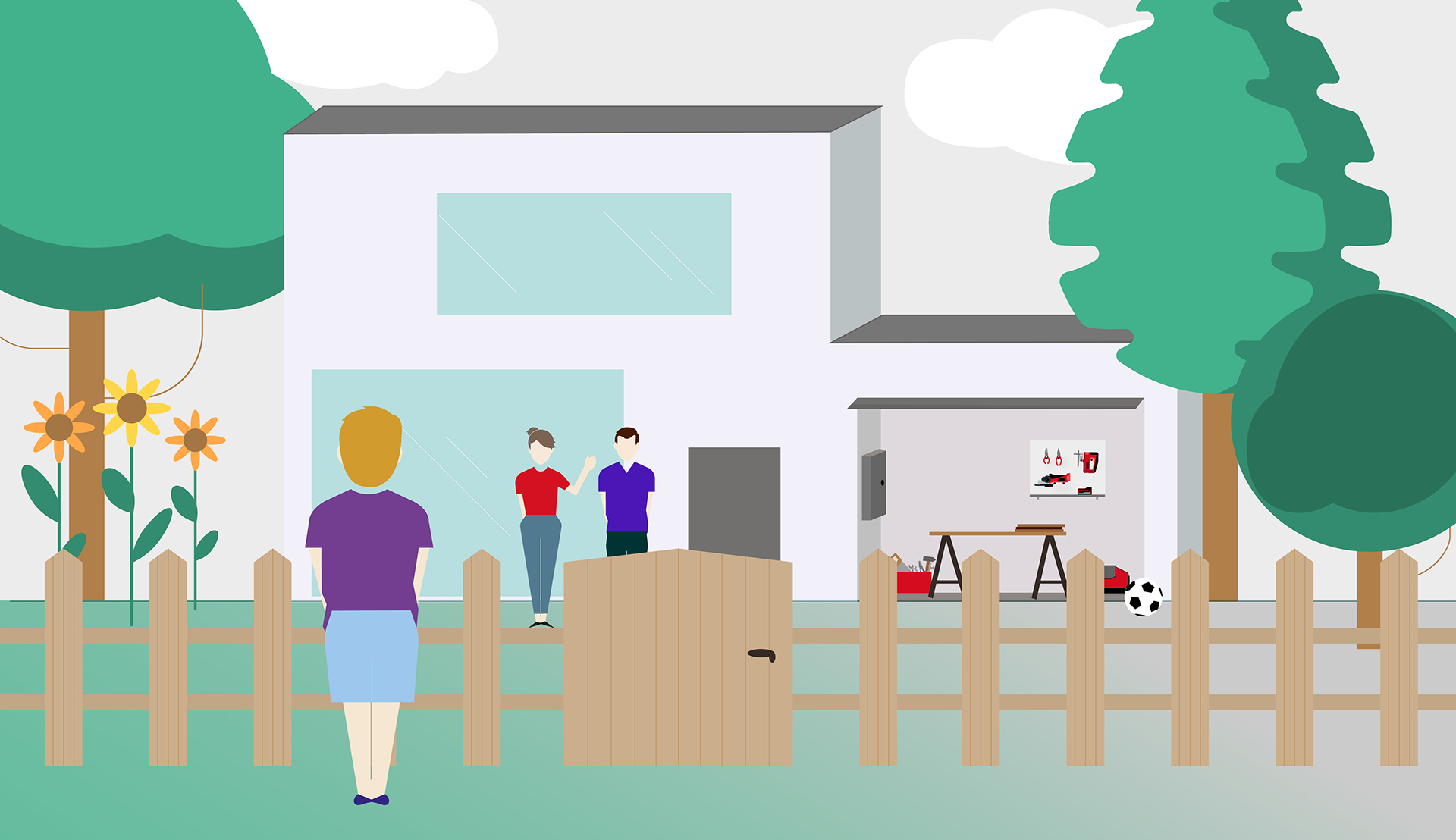Einhell Delphi Study
Our Home in 2030Our own four walls have always held a high degree of emotional significance for people – as a safe haven as well as a space for self-fulfilment. But will they continue to be so? And how might the significance of the home change against the backdrop of the four main drivers of change: progressive digitalisation, ageing population, challenges posed by climate change and the effects of globalisation?
The answer to this can be found in our current Einhell Delphi study "Our Home in 2030", which was carried out by the Otto Beisheim School of Management on behalf of Einhell Germany AG.
The experts
As part of a future study using the Delphi method, 60 experts from a wide range of fields – from architects and journalists, owners and managers of DIY stores and media professionals to tool manufacturers and renowned scientists - have developed a vision for the importance of our own homes in 2030.
Our Home in 2030 – future scenarios

Home as a place undergoing change
Scenario 1 involves four projections of the future and describes the home as a place undergoing change In line with this, people in Germany are more likely to move from the city to the countryside, invest more in the modernisation of their own homes, operate their motorised tools and devices with battery technology and live in smart homes. This would signify a reversal of the urbanisation trend. Experts believe that the probability of such a scenario occurring is high and more than desirable. The impact of such a future scenario is estimated to be comparatively high.
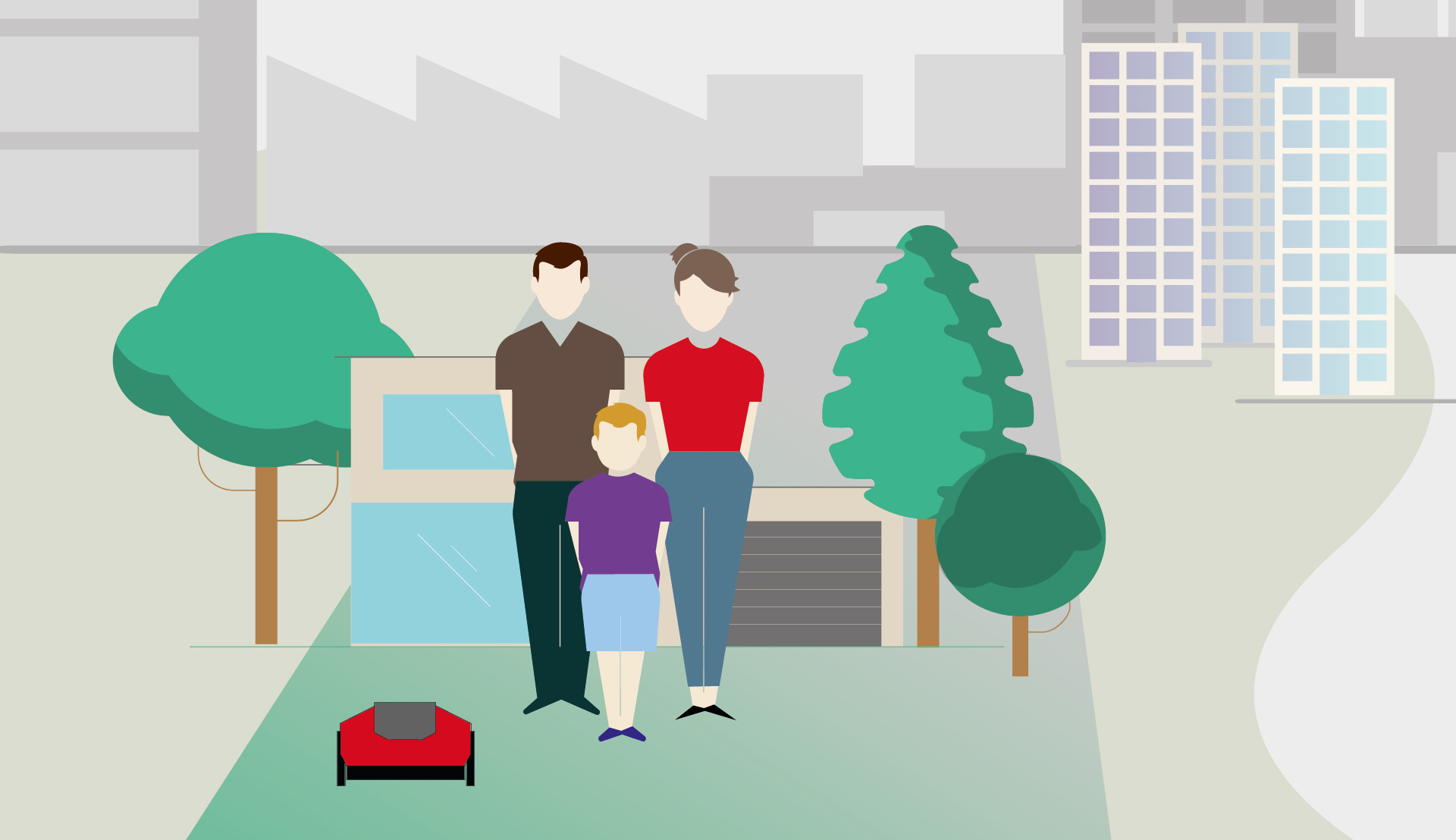
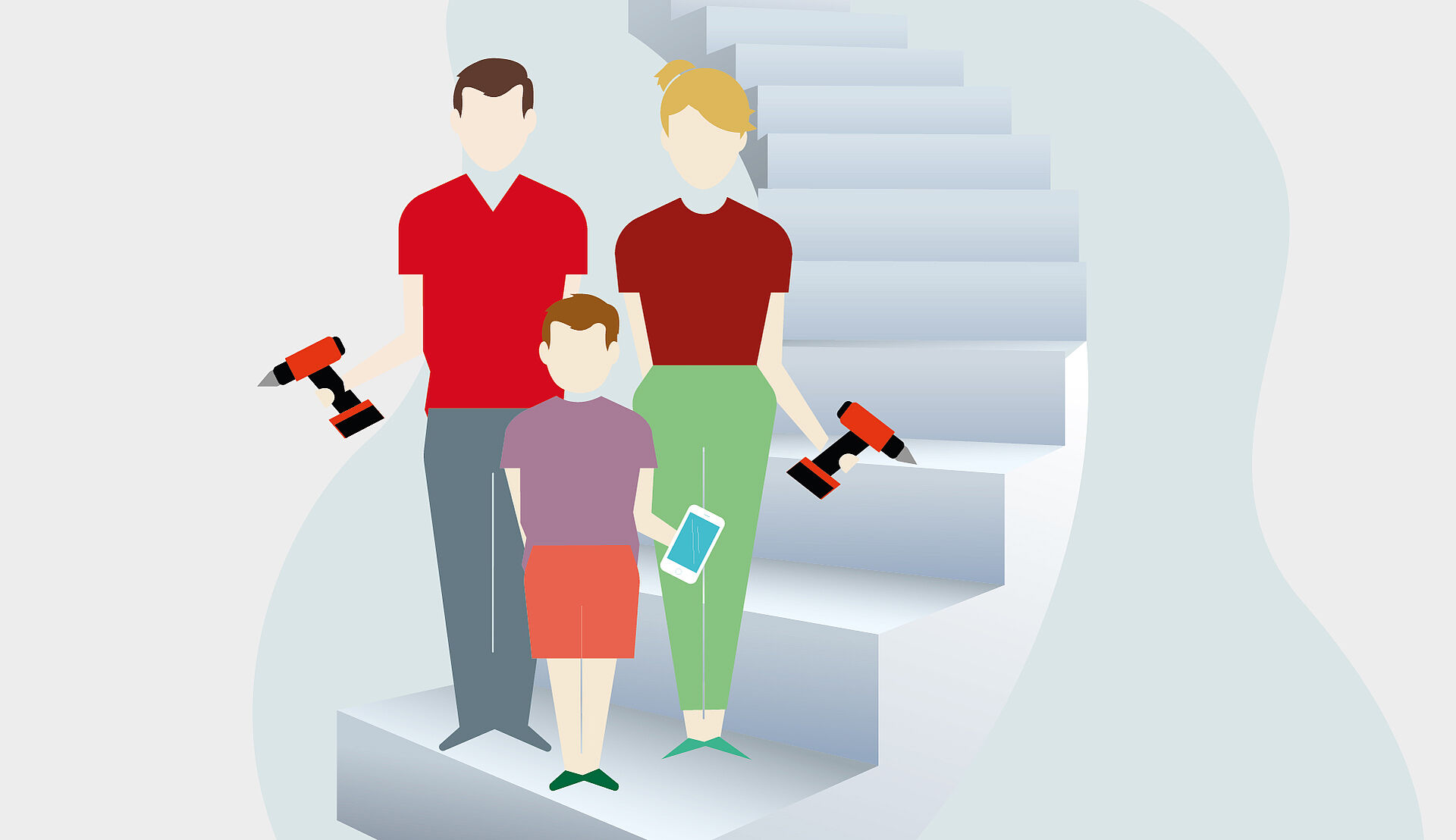
Home as a place of equal self-fulfilment
Scenario 2 involves three projections of the future and describes the home as a place of equal self-fulfilment. In this possible future scenario, DIY is one of the most popular leisure activities, and men and women share DIY activities on an equal footing. In addition, the home is understood as the primary status symbol on social media and presented accordingly. Compared to scenario 1, however, the experts believe the probability of occurrence to be lower and consider this scenario to be somewhat less effective and desirable
Home as a place of systematic retreat
Scenario 3 involves five projections of the future and describes the home as a place of systematic retreat. In this scenario, which is also less likely than scenario 1, people spend most of their time at home, including working there. This is also reflected in the projection, according to which people will only use a standardised battery platform for their electronic devices in 2030, which is expected to be very desirable, but also rather unlikely. One of the reasons for this is the lack of interest from manufacturers in cross-competitive and/or cross-industry solutions by 2030.

WHU Otto Beisheim School of Management
The WHU – Otto Beisheim School of Management is an internationally oriented, privately funded, university-ranked business school with sites in Vallendar and Düsseldorf. At WHU, more than 50 faculty members conduct research and teach in the areas of management, finance and accounting, economics, entrepreneurship and innovation, marketing and sales, and supply chain management. WHU's high level of research competence is the result of a reflection on three key research principles: Quality, internationality and practical relevance for teaching and practice. WHU's strategy is based on four core values: Excellence, entrepreneurship, strong cohesion and a cosmopolitan culture. An atmosphere characterised by openness, curiosity, diversity and equal opportunities is of the utmost importance to WHU.
You can find more information at https://www.whu.edu/en/

Trends for Our Home in 2030
The world is not developing linearly and numerous influencing factors can have different effects on the development of markets. Therefore, various scenarios are developed in Delphi studies, which move in the field of tension between probability of occurrence and social desirability. The panel of top-level experts for the Einhell Future Study focuses these scenarios in relation to the "Our Home in 2030" on five key findings, which will be published here soon.
My new home – my showpiece
From DIY to the creator economy: In an increasingly insecure and digital environment, the home will become a refuge in the future and will be appropriately maintained, expanded and transformed into an individual status symbol and retreat.


City, country, home
From rural exodus to rural rediscovery: In the face of increasingly expensive and uninhabitable cities, people in Germany are increasingly placing value on their own four walls and their own garden.
And this includes women, as more and more women are discovering DIY for themselves
"In 2030, men and women in Germany will share DIY projects on an equal footing", the majority of the experts surveyed in the Einhell Delphi study "Our Home in 2030" concluded. This social change is supported by advances in battery technology, which make tools easier and more convenient to use.
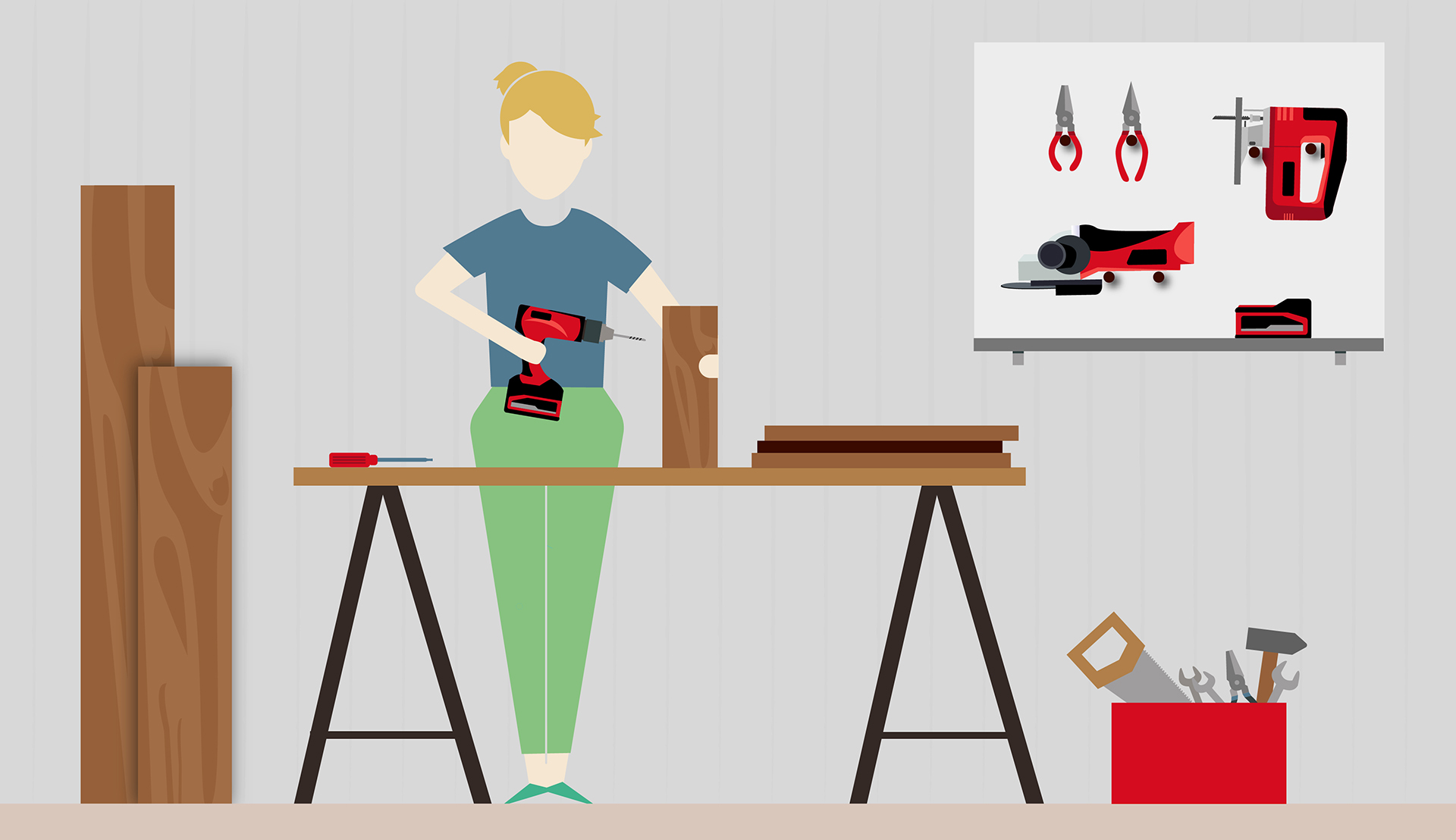
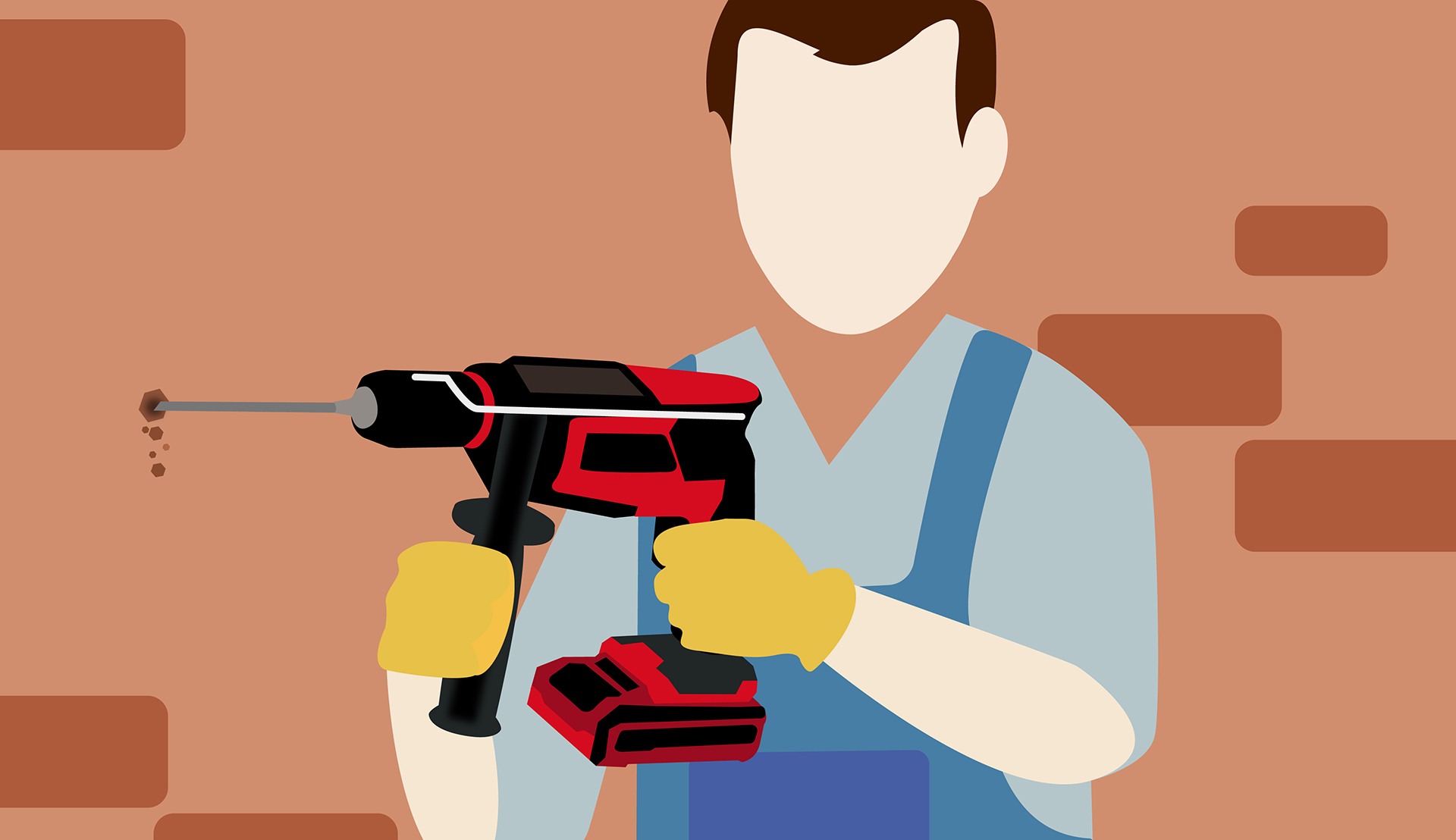
DIY enthusiasts rely exclusively on battery power
Battery technology will completely replace corded electric or petrol-powered devices and garden tools. A clear majority of experts predict that by 2030, people in Germany will be using battery technology for all of their motorised tools and devices.
Your home has replaced the car as a status symbol
Since the 1950s, your car has been a real status symbol and signalled the values of diligence and prosperity, mobility and freedom. Meanwhile, as the Einhell Delphi study "Our Home in 2030" shows, people's homes are far more important than their cars. The Einhell study thus confirms a trend that has been emerging for several years.
